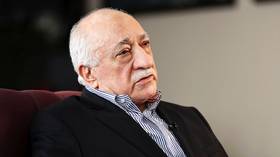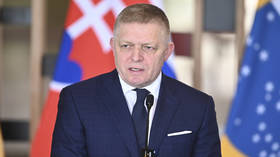Alleged mastermind of 2016 Turkish armed coup dies

Exiled Turkish cleric Fethullah Gulen, who was accused by Ankara of masterminding the 2016 coup attempt in his homeland, has died in the US. The Pennsylvania-based Islamic scholar passed away in a hospital on Sunday evening after a lengthy illness, the Turkish Foreign Ministry confirmed on Monday. Gulen was 83 years old.
Turkish Foreign Minister Hakan Fidan has said that Ankara’s intelligence sources are confirming the death of Gulen.
In July 2016, a faction of the Turkish military attempted to depose the government and President Recep Tayyip Erdogan, using combat aircraft and other heavy weapons to seize control of key locations in the country. Around 300 people were killed in the violence.
Following the attempted coup, the Turkish government relentlessly purged suspected Gulen loyalists, with thousands of people facing criminal charges. Ankara also designated Gulen’s Hizmet movement as the ‘Fethullahist Terrorist Organization (FETO)’.
The cleric moved to the US in 1999 for medical treatment but subsequently remained. Turkish officials have accused him of building a network of supporters who infiltrated various parts of the government in his homeland, particularly the judiciary. The US has rejected multiple Turkish requests to extradite Gulen.
During Erdogan’s rise to power in the 1980s, he and Gulen were considered political allies. However, their relations sourced after 2013, when the preacher vocally criticized Ankara’s handling of mass demonstrations known as the Gezi Park protests. The deadly disturbance lasted for over two months and was opposed to a number of government policies, which protesters claimed were dragging the country away from secularism and towards Islamism.












